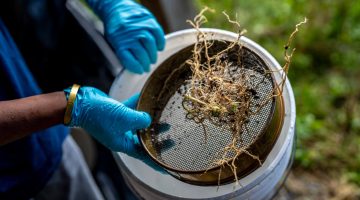News Center features $2.25 million state grant for UMaine PFAS research
News Center Maine featured a story on the $2.25 million grant funding from the Maine Department of Agriculture, Conservation and Forestry to University of Maine researchers. Their projects are aimed at helping commercial farmers manage contamination from PFAS, a group of toxic, long-lasting chemicals.
Read more

